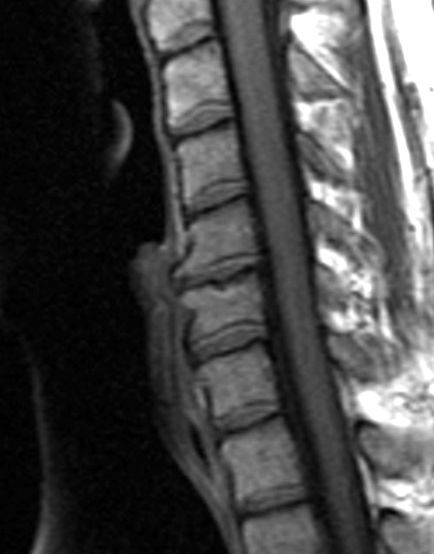What is Disc Degeneration?
Unlike its name suggests, degenerative disc disease is not really a disease, but a term used to describe the changes that occur in your spinal discs over time. Your discs are soft, compressible pads that separate the vertebrae (bones) in your spine. This tissue breaks down as you age, and can cause severe pain in the localized area. The rate at which your discs degenerate corresponds with the amount of activity that you use them for.
An intensely physical job or routine that places stress on your back can greatly increase your rate of degeneration. Obesity, smoking, and a loss of fluid in your discs can also cause disc degeneration.
 Stillwaterising derivative work: Stillwaterising (talk) - Cervical_Spine_MRI_showing_degenerative_changes.jpg
Stillwaterising derivative work: Stillwaterising (talk) - Cervical_Spine_MRI_showing_degenerative_changes.jpg
Signs and Symtoms of Degenerative Disc Disease
You may have degenerated discs if you have chronic lower back pain, pain in the hips, buttocks, or thighs while walking. You may also feel more pain when placing stress on your spine, by twisting, lifting or while sitting.
Without treatment, degenerative disc disease can lead to a seriously debilitating condition that will have a greatly negative impact on your quality of life.
Surgical Treatment Options
Degenerative Disc Disease can be treated with the following procedures:
- Discectomy